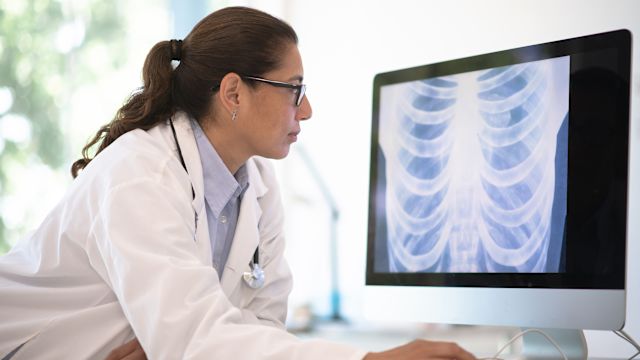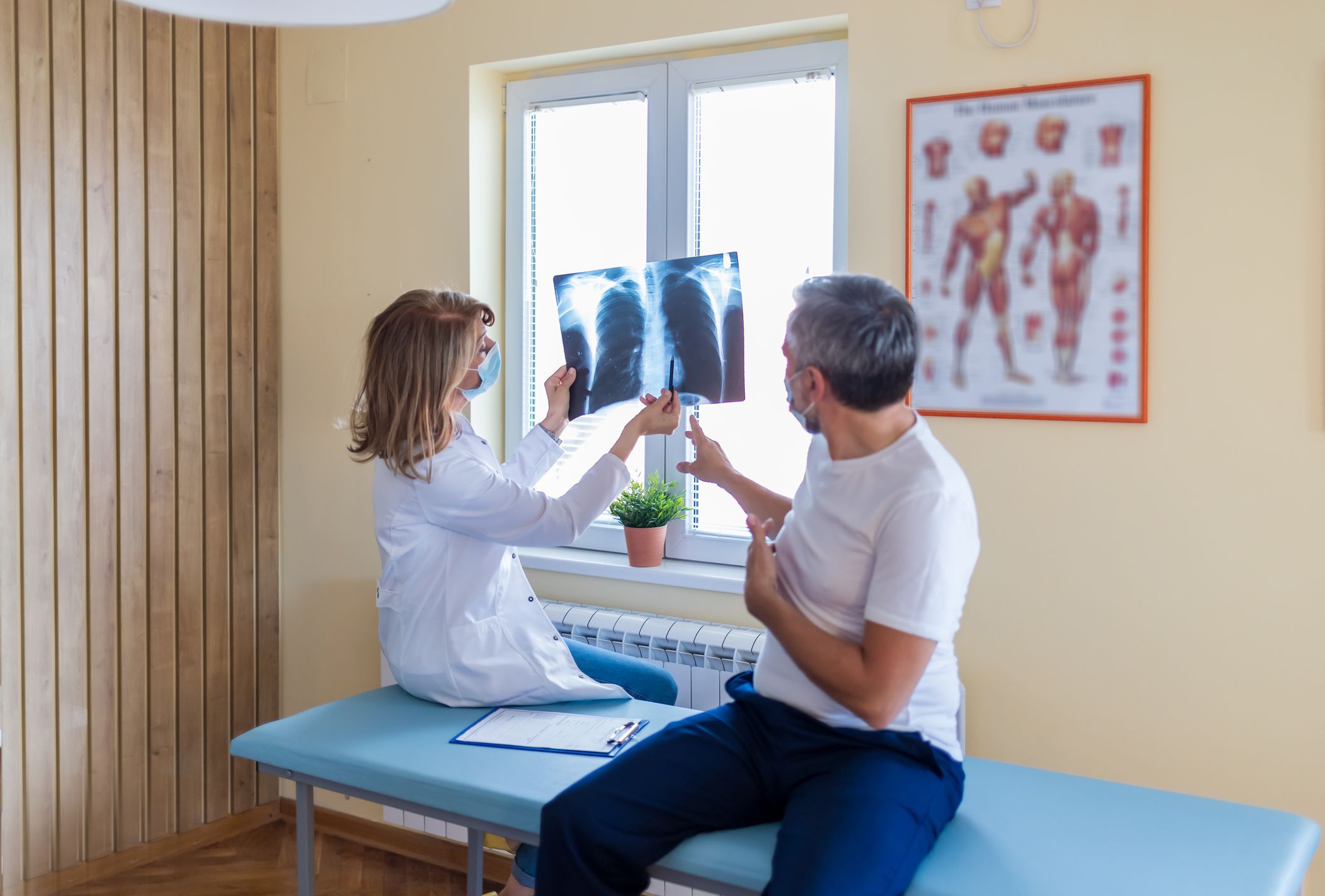Updated on September 18, 2025
When you’re learning about lung cancer, you may find some medical terms unfamiliar. This glossary will help you decipher common words and phrases related to the diagnosis, treatment, and science of the disease.
Adjuvant therapy
Treatment given after initial therapy to reduce the odds of cancer’s return. Following lung cancer surgery, for example, you may receive adjuvant chemotherapy.
Biomarker
A molecule in your body’s fluids or tissues that can indicate disease, problems with a bodily process, or normal function. Biomarker testing can help measure how well you’ll respond to certain lung cancer treatments.
Biopsy
The removal of fluid or tissue from your body for examination in a lab. Biopsies are often used for lung cancer diagnosis.
Carcinoma
Cancer that originates in the lining of organs. The vast majority of lung cancers are carcinomas. In fact, lung cancer is often called lung carcinoma.
Chemotherapy
A medicine or combination of medicines used to target and stop the growth of cancer cells. For lung cancer, chemo can be used alone or with other therapies, depending on the status of your disease.
Chronic obstructive pulmonary disease (COPD)
A chronic inflammatory lung disease that obstructs airflow from the lungs, often caused by smoking. The two primary kinds of COPD are emphysema—which damages the lungs’ air sacs—and chronic bronchitis, characterized by inflammation of the lungs. Most people with COPD have symptoms of both conditions.
Clinical trial
A research study involving patients that assesses new prevention, diagnosis, or treatment methods for a certain disease.
First-line treatment
The accepted initial treatment for a disease. In lung cancer, first-line treatment may involve chemotherapy, radiation or surgery, among other therapies. Second-line treatment is given when first-line is ineffective, stops working or causes intolerable side effects.
Immunotherapy
A kind of cancer treatment that uses medicine to induce, boost, or stifle an immune response, allowing your body to better recognize and destroy cancer cells.
Metastasis
When cancer spreads beyond its original site to other areas of your body.
Non-small cell lung cancer (NSCLC)
The most common kind of lung cancer, making up 80 to 85 percent of cases. The three biggest subtypes of NSCLC are adenocarcinoma, squamous cell carcinoma, and large cell carcinoma.
Oncologist
A physician who specifically focuses on cancer diagnosis and treatment. Radiation oncologists specialize in radiation therapy, while medical oncologists specialize in chemotherapy, immunotherapy, and targeted therapy. There are also surgical oncologists who specialize in the surgical treatment of cancer.
Pulmonologist
A physician with expertise in lung disease diagnosis and treatment. Words with the root “pulmo” or “pulmon” relate to your lungs.
Quality of life (QOL)
In terms of your health, the ability to do day-to-day activities and take pleasure in your life.
Radiation therapy
Treatment that uses high-energy radiation beams to obliterate cancer cells and reduce the size of tumors. Radiation is a common lung cancer therapy, used at several different stages for different purposes.
Recurrence
The return/relapse of cancer, either to its initial location or to another spot in your body.
Small cell lung cancer (SCLC)
A fast-spreading cancer that, along with NSCLC, is one of the two main types of lung cancer. SCLC makes up about 10 to 15 percent of lung cancer cases.
Targeted therapy
Drugs intended to treat specific cancer cells while causing less damage to normal cells. They can be used alone or with chemotherapy and may have fewer and milder side effects.






